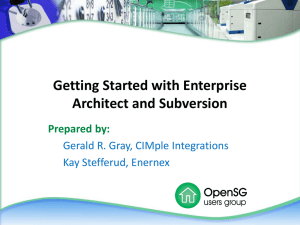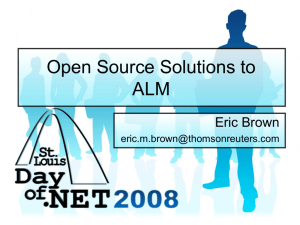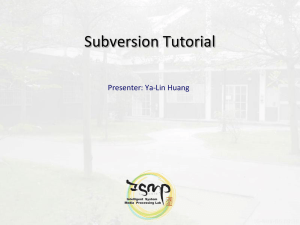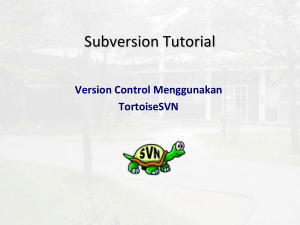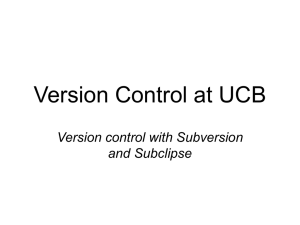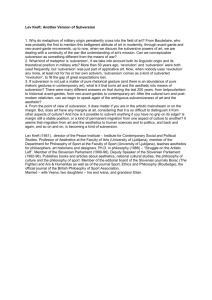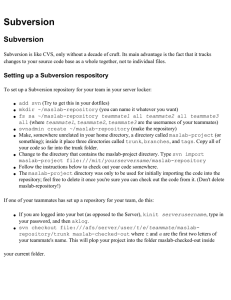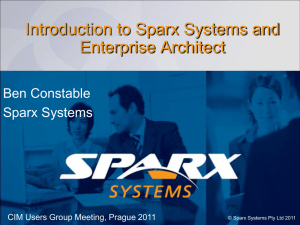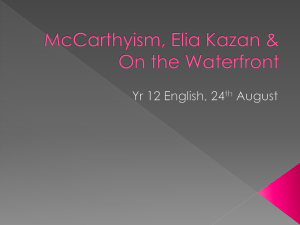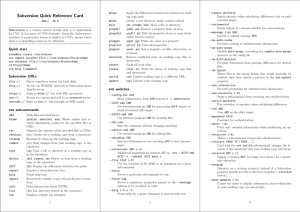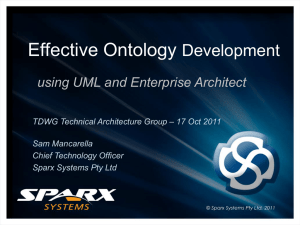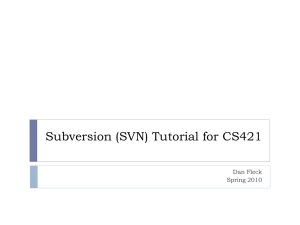20120625-Bootcamp-Learning UML with Enterprise
advertisement
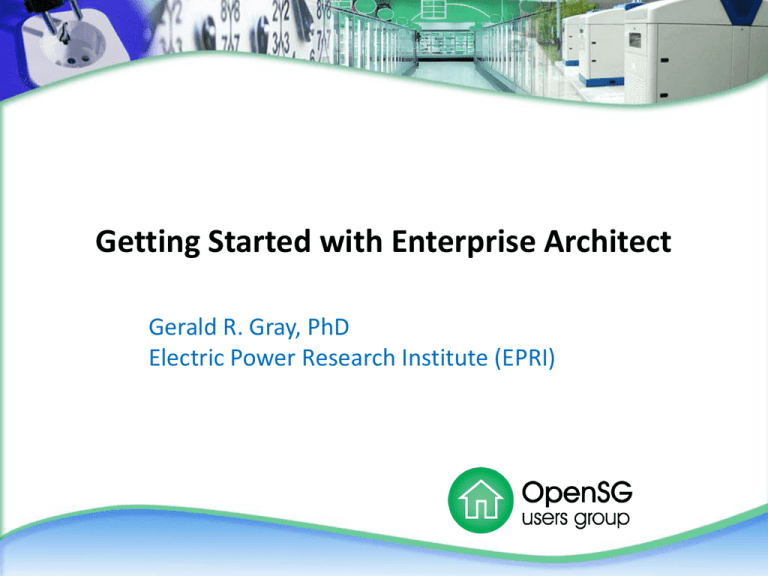
Getting Started with Enterprise Architect Gerald R. Gray, PhD Electric Power Research Institute (EPRI) Disclaimer • Not a celebrity spokes model • Not a SparxSystems representative Agenda • • • • • • EA Strengths/Weaknesses Pre-requisites Access Setup & Configuration Creating common OpenSG diagrams Model Baselines EA Uses and Benefits • Supports IT system, software, and business processes • Model, design, build, and test software • Uses standard Unified Modeling Language (UML) • Central repository for process and IT system information • Interfaces with version control e.g. Subversion • Fast, built-in or custom document generation & HTML EA Weaknesses • May be a poor choice for complex system diagrams – Visio is “prettier” – PowerPoint also an option • Complex User Interface – Extensive feature set may lead to confusion – Time saving “tricks” difficult to learn • Diagrams not useful if team doesn’t see value – UML/BPM may be used currently at their site – Some users intimidated by tool Pre-requisites • Sparx Enterprise Architect – http://www.sparxsystems.com.au/ – $135 - $699 depending on version • Subversion – Command-line client (required) • http://www.open.collab.net/downloads/subversion/ – TortoiseSVN (optional) • http://tortoisesvn.net/downloads Repository Access • UCAIUG Microsoft SharePoint credentials • Added to the Source Code Access group in the UCAIUG SharePoint user management (Tony Adams, Kay Clinard) • Coordinate with the appropriate team, ie., OpenADE, OpenADR, OpenAMIENT • Subversion can be used locally Installation • Install – Enterprise Architect (v7.5 or greater) – Subversion command-line client • http://www.collab.net/downloads/subversion/ – TortoiseSVN (Windows) • http://tortoisesvn.net/downloads Working Directory Creation • C:\OpenSG\Test\Working – In Windows Explorer, right-click on folder • Using TortoiseSVN repo browse to: – http://svn.ucaiug.org/svn/cimugrepo • Enter credentials if prompted • Right-click on folder in left-hand panel • Select Export… to directory created above EA Configuration • Start Enterprise Architect • Open the project • From main menu select – Project Version Control Version Control Settings… EA Configuration – – – – Create a unique name Select type: Subversion Point to working directory Subversion exe path should prepopulate – Click Save EA Configuration • Right-click on Package • Select Package Control • Select Add Branch to Version Control… • The key icon is added to each package under version control Common OpenSG Diagrams • Use Case • Business Process (Activity) – Integration Requirements • Sequence Diagram Adding a Use Case • Project Browser – New Package – grouping of diagrams – Add new diagram: Use Case – In the workspace add • Actors, cases, associations – Save changes, check-in package Adding a Business Process • Project Browser – Add new diagram: Activity – Open workspace, right-click for Swimlanes and Matrix… – Add swimlanes – Add Activity and flows Integrations Requirements • Addition to the Activity diagram – Typically a hand-off from the business user to the architect/software – Object flow between two activities, spanning actors (swimlanes), between two systems – Add requirement – Right-click properties • Type dropdown: Add Integration – Change node to identify service name Adding Sequence Diagram • Project Browser – Add diagram: sequence – Open workspace – Add Actors – Add flows (asynchronous) – Add returns (“Is Return” checkbox) Manage Baselines • Internal “version control” – Can be used in conjunction with DBMS – Corporate version required* • Baseline can be added to each package • Complements import/export of XMI – Import XMI replaces everything in a target package – Can be compared to XMI to replace only desired changes Reference • EA Free Trial – http://www.sparxsystems.com/products/ea/trial.html • Subversion Documentation – http://svnbook.red-bean.com/en/1.5/index.html • EA Tutorials and Online Help – http://www.sparxsystems.com/resources/index.html • Test Repository – http://svn.ucaiug.org/svn/TestRepos/ Contact Gerald R. Gray, PhD Electric Power Research Institute (EPRI) ggray@epri.com
